A Cuban Soap Opera Remakeby Matias Travieso-Diaz and Eloy Gonzalez-Argüelles [I want to speak, I want to speak, tell everyone Albertico Limonta is my grandson, the child of my oldest daughter Maria Elena.] Don Rafael del Junco’s silent litany in El Derecho de Nacer by Felix B. Caignet In mid-2047, the Instituto Cubano de Radio y Televisión (Cuban Institute of Radio and Television, or CIRT), received a proposal for a revival of the 1948 radio soap opera El Derecho de Nacer (The Right to be Born) by the Cuban radio writer Félix Benjamín Caignet Salomón. At the time, El Derecho, as it was called, swept Cuba by storm, and then spread to all of Latin America in a run that lasted over fifty years. It was regarded as one of the most influential soap operas of all time, and had been the subject of numerous radio, television and movie adaptations. The revival (in the form of a TV series to be aired in Cubavision) was to start in April 2048 to coincide with the centenary of the original radio broadcast. José (“Pepe”) Cubero, a brilliant movie and TV producer and director, was the proponent and strongest defender of the project. He acknowledged that the 1948 soap opera would have to be modified a bit to make it consistent with the culture and politics of twenty-first century Cuba, but felt the changes would be small and well within his creative abilities. The proposal met opposition from some of the most orthodox members of the Communist Party. They claimed that the original story was rife with the type of bourgeois, capitalistic ideology that had been eradicated after almost ninety years of Socialist rule. Other opponents, more practical, pointed to the chronic economic crisis that bedeviled the island with words like these: “Anything we broadcast must encourage the Cuban people to work harder, make sacrifices, concentrate on rebuilding the economy in the face of the heartless Yankee blockade. El Derecho is a frivolous, escapist diversion that would get us sidetracked from our mission. And it will run for many months, compounding the damage.” The matter was kicked upward to land on the lap of Miguel Diaz-Canel, who had been President and First Secretary of Cuba’s Communist Party for almost thirty years. He was in his mid-eighties and getting ready to step down, so he was in no mood to mediate in ideological disputes. He ruled: “Let Pepe Cubero come up with a proposed screenplay and give it to the President of the CIRT and the Minister of Culture. Let those guys decide what changes to the screenplay are required to render it acceptable, make those changes, and run with it. Don’t bother me with this shit again.” The Minister of Culture, Haydée Alonso, who had studied in Paris, quoted Sartre, and prided herself on being open-minded and liberal (within the ideological bounds of the Party), was enchanted with the idea of a revival of El Derecho, so she was inclined to give Cubero a relatively free hand. This was good news to Cubero, although no one else liked Haydée. No one forgave her for her unpatriotic preference for smelly Gauloise cigarettes that stunk up the studio, and that she did so “in the land where the best tobacco in the world used to be grown.” The CIRT President, Danylo López, was an old, dried-up bureaucrat concerned mainly with toeing the Party line and avoiding controversies, and was not amenable to letting Cubero get away with much. Torn between polar extremes, development of the new version of the soap opera proceeded in painful fits and starts. The first bone of contention was the character of Don Rafael del Junco, the villain of the story. Everyone agreed that Don Rafael, a haughty unscrupulous landowner, was a proper embodiment of the pre-Revolutionary capitalistic class. However, at the end of the original 314 episodes, Don Rafael reconciled with his daughter and grandson, and ended up being presented in a somewhat favorable light. “We have to change the ending” argued Danylo. “There can be no redemption for the enemies of the people.” Cubero reluctantly agreed to modify the end of the series so that Don Rafael got his comeuppance. He was hoping against hope that by the time the last episodes were filmed Danylo would have changed his mind. Then there was María Elena, the daughter of Don Rafael and mother of the hero of the series. Again, everyone agreed that she showed courage in refusing to have a late term abortion and insisting on giving birth to her illegitimate child. However, in the original series she sought shelter for her grief in a convent, where the nuns and other members of the community treated her with compassion and understanding. Danylo was loath to include any episodes that praised religious people. “Religion is the opium of the masses, and the State must not condone it in any manner.” Cubero had to change the script to have María Elena become a sort of hermit, seeking solace from the apparent loss of her child on a deserted shore. That in itself was problematic, since Cuba had implemented an internal passport system that was rigidly enforced. In the new Cuba, there was nowhere to hide. At the end, this discrepancy was allowed as poetic license, hoping it would not be noticed by anyone who had the power to object. In the original El Derecho María Elena leaves her newborn baby boy in the care of her once wet nurse, the black María Dolores, who saves the infant from being slain on orders from Don Rafael, manages to give Don Rafael the false impression that she and the baby are dead, and escapes with the infant to a remote village. There, she raises the boy as her own child, naming him Alberto (“Albertico”) Limonta. One salient and recurring problem was the relationship between “son” and “mother,” due to the fact that María Dolores claimed he was her son, even after his infancy. Yet, the actor chosen by Cubero to play Albertico, Ontario (“Guapito”) Ledesma, was white. Very white. Blondish. On the other hand, the lady portraying María Dolores was black, as stipulated by Caignet in the original soap opera. Coal black. No one seemed to find the discrepancy odd except for Haydée, who said that the role of María Dolores seemed taken out of Gone with the Wind. Her remark was met with a deadpan silence, for nobody in Cuba remembered or cared about old Yankee movies. The racial disparity problem did not fully surface at first, because the boy who played Albertico as a child had a darker complexion that made his relationship with María Dolores more credible. But later on in the show, when Ontario assumed the role of 25-year-old Albertico, María Dolores’ claim that he was her son began ringing hollow. Different suggestions were considered: darkening Ontario’s skin with blackface make-up like Laurence Olivier in Othello, other things of that nature. Haydée opposed them all, because, she said, it was not impossible that Albertico could still be María Dolores’ biological son. So, things were left unchanged. There was one scene, however, when the script called for older Albertico to run up to his mother and say, “Mamá, I love you so” as he hugged the black woman. The scene had to be redone many times because the crew in the studio—and later on, even Albertico and María Dolores—could not control their laughter. In the end, the scene was filmed as it was and prompted sarcastic comments among the viewers once aired. Much was done in the original series to highlight the discrimination and ill treatment that both María Dolores and Albertico endured on account of her race. Danylo liked that and wanted to accentuate the criticism of the racist society that existed in the country before the Revolution, but was opposed by Haydée, who warned not to overdo that aspect of the plot. “Remember, Danylo,” she said, “there are still people left in this country who believe blacks are inferior, although they won’t openly admit to it. There is no point in rubbing their noses on our commitment to equality among the races.” At the end, Danylo carried the day. Albertico, who was white, would be repeatedly abused and discriminated against for having a black mother and being a mulatto. In one scene intended to bring more “realism” to the story, a classmate of Albertico has a fight with him and calls him an “hijo de puta” (a bastard), not an uncommon insult in Spanish. Danylo objected to the use of such foul language, as it was not in keeping with Socialist morality. Haydée replied that this choice of words was used by ordinary people and prude sentiments to the contrary were a bourgeois atavism. A heated debate ensued and, at the end, Haydée seemed to say that the language in the series should not be controlled by a “partido de hijos de puta,” which many people took to refer to the Communist Party. Haydée, however, swore that she had not said “Partido” but “partida,” meaning “bunch” or “group,” without any political connotation. Since no one could produce a definitive argument, the matter was dropped, along with the entire scene. Many episodes later, thanks to María Dolores’ innumerable sacrifices, Albertico manages to make it through the university and becomes a famous doctor. In the original version, Albertico gets to be rich and lives in comfort with his aging “mother.” Both Danylo and Haydée objected to this turn of events. Cubero was required to rewrite that part of the story to have Albertico live modestly, see indigent patients for free, and travel to Haiti to help treat the victims of a devastating earthquake. In the rewrite, Albertico returns to Cuba with a newfound social conscience, alert to the inequities of the capitalist society and committed to fighting them. Later in the series, Albertico is doing night duty at a public hospital’s emergency room when several injured people are brought in after a traffic accident. One of them is an old man who is bleeding to death. The victim’s blood type is AB negative, the rarest type, which is unavailable at the ill-equipped public hospitals of pre-Revolutionary times. Albertico, AB negative himself, gives a transfusion that saves the man’s life. The victim, who is no other than Don Rafael del Junco, recovers and as he convalesces, he invites his savior to come to dinner and meet his family. There Albertico meets Isabel Cristina, daughter of María Elena’s sister Matilde, and a budding romance blooms between the couple, unaware that they are cousins. Danylo was not in favor of retaining potential incest as part of the plot, and Cubero had to add another twist at the end of the story where it is revealed that Isabel Cristina is not the natural daughter of Matilde, but only an adopted one, eliminating another potential offense to Socialist morality. Don Rafael, now fully recovered, is one day taking a stroll near an outside market, when he spots an old black woman that he immediately recognizes as María Dolores, who he had written off as dead many years before. He follows the woman, overtakes her, and confronts her. María Dolores acknowledges that she and Albertico are alive and well, and rebukes Don Rafael for his cruelty. Cubero is asked to add language to the confrontation scene wherein María Dolores lists once again all the aristocrat’s misdeeds and concludes with a stirring pronouncement: “Beware, for your days are numbered. The people soon will hold you accountable for all the crimes you have committed against your family and against society.” Staggered by these revelations, Don Rafael returns home, where he promptly suffers a stroke (“derrame cerebral”) (a common mishap in soap operas) and falls into a coma. In the original version, Don Rafael stays in a coma for many months, burning with desire to impart the crucial news of the existence of his missing grandson to his wife and daughter, but is paralyzed and unable to speak. Here, however, science rather than politics interferes with the progress of the story. By 2047, a process had existed for years by which an artificial intelligence (AI) could accurately decode words and sentences from brain activity. Using only a few seconds of brain activity data, the AI can guess what a person is trying to say and translates it into a voice recording. The AI was commonly used throughout the world, including Cuba, to help people unable to communicate their thoughts through speech, typing or gestures. The existence of the AI technology rendered a crucial portion of the original version of El Derecho vulnerable to ridicule by the viewing public. There was no way Don Rafael could linger, speechless, for several months. Cubero and his creative team struggled with the problem for weeks and finally had to come up with a lame solution: Don Rafael suffers a “derrame cerebral,” but recovers almost immediately and, instead of bringing the existence of his grandson to the attention of everyone, has a change of heart and continues to cover up his earlier nefarious crimes by accusing María Dolores of theft and charging Albertico with complicity in the black woman’s schemes. Isabel Cristina, whose love for Albertico has not been diminished by Don Rafael’s accusations, alerts her boyfriend before the police can seize him, and Albertico escapes to a bitter exile in Tampa, where his mulatto identity subjects him to additional discrimination and mistreatment at the hands of the American imperialists. Meanwhile, María Dolores lingers in jail and ultimately dies of sorrow. From that point on, the plot of the revival diverges entirely from the original radio show. Albertico becomes a revolutionary hero and travels back to Cuba to take up arms in the mountains against the corrupt government. He alerts Isabel Cristina of his whereabouts and she joins him to continue, together, their fight for justice. Through one of his comrades, who knew Isabel Cristina’s parents, it is revealed that Isabel Cristina and Albertico are unrelated, whereupon the couple is chastely married in a civil ceremony conducted by a rebel leader. They are enjoying a brief honeymoon when they learn that Don Rafael has been killed in a terrorist attack against the Presidential Palace, where he was attending a reception. Albertico and Isabel Cristina kiss and hug each other, relieved at the evildoer’s death, and the series ends. As the first six episodes were filmed, José Cubero had increasing misgivings about the product he was going to set before the public. Technically, the series was as good as he was capable of putting together: photography, score (instrumental renderings of Cuban ballads going back to the 1800s), sound effects, customs, editing, were all first class. He had assembled a cast of experienced actors and actresses, with a famous Spanish TV personality in the role of Don Rafael. Much of the series was shot in locations selected for their beauty or historic interest. Artistically, though, Cubero felt he was doing a disservice to—actually, betraying—Caignet’s original work and regretted all the compromises he had been forced to make to get the project approved. As a way to hide his guilt, he made sure of the destruction of all copies existing in Cuba of the audio, TV and movie versions of the series, be they from Cuba, Puerto Rico, Ecuador, Peru, Brazil, Venezuela or Mexico. Cuban censorship saw to it that no written materials describing the 1948 series were available to the public. Since there was nobody alive who had listened to the original broadcast, Cubero felt confident that he would not be confronted by critics of the savaging he had been forced to perform on the original. Still, he went to bed the night of Tuesday, March 31, 2048 with a heavy heart, in anticipation of the premiere of the series the following evening. He tossed and turned in bed all night and, in the few minutes of actual sleep, was accosted by the image of a dapper slim man sporting a trim moustache and a mane of black pomaded hair, who appeared and disappeared before him making menacing gestures and repeating incessantly a single word: “Why!!?” The first episode of the new rendering of El Derecho de Nacer was shown on Cubavision at 9 p.m. on April 1, 2048. The show ran, Monday through Saturday, for 310 episodes, the last one playing in the spring of 2049. While initially garnering much public attention, interest in the series wore off quickly, so that the last episodes were seen by almost nobody. Many concluded that much of what was shown and said in the series was predictable and no different, except for its excessive duration, from other political indoctrination efforts by the government. José Cubero finished producing the last package of ten episodes and sought and was granted permission to take a short vacation abroad to recover from his massive effort. He was last spotted taking an Iberia plane bound for Madrid on April 15, 2049. He was never seen again. 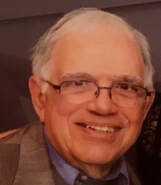 Matias Travieso-Diaz was born in Cuba and migrated to the United States as a young man. He became an engineer and lawyer and practiced for nearly fifty years. He retired and turned his attention to creative writing. Seventy of his stories have been published or accepted for publication in paying short story anthologies, magazines, blogs, audio books and podcasts. Some of his unpublished stories have also received “honorable mentions” from a number of publications. A collection of some of his short stories, The Satchel and Other Terrors, is scheduled for publication in February 2023. 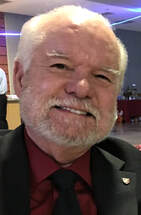 Eloy González Argüelles was born in La Habana, Cuba, and came to the United States in 1961. His studies culminated in a PhD in Romance Languages at the Ohio State University. He taught at Wheaton College (Norton, Massachusetts) and the University of Massachusetts (Harbour Campus) before moving to Washington State University (WSU), where he taught Spanish literature and literary criticism for 38 years. For ten of his last twelve years before retirement he was Chair of the Department of Foreign Languages and Cultures at WSU. His output includes a novel, a book on the chivalric novel, and articles in scholarly journals and conference presentations. Upon retirement he became an Emeritus Professor at WSU.
0 Comments
Beyond the Cave by Kevin M. Casin Bran arrived at the cave. The shadows held by the chalky stone frame played with him, shaping into the fairies from his dreams. Maybe they were eating the travelers. Nic grunted as he climbed onto the shale slab. He rolled and lithely sprung to his elvish feet. “Why the gods thought to bring us together, I will never understand,” he grumbled. He tossed his loose brown hair. His brown hands brushed charcoal dust from his caramel leather vest and adjusted the bow and quiver on his back. “Bring me to my death, he will. Just watch…” Bran wrapped a fleshy arm around Nic’s slender shoulders and said “see, it wasn’t so bad!” “Be careful, Bran,” Nic said. “Your research won’t save up. We slipped past the guards. No one is coming if something goes wrong.” “Oh, stop worrying. What’s the worst that could happen? We’ll look around and go home.” Bran looked around for bone, carcasses, anything that might show signs of a feast. He found none. If they weren’t eaten, then maybe captured and held against their will? “Since you’re so worried, I’ll go in first,” said Bran. He took his birch staff into his brown hand and slipped the vine band off his chest. He looked back at Nic with a smirk, “and make sure everything is safe before you come in.” Darkness washed the world from Bran’s skin. He held his staff tight with both hands. A tingle entered his fingertips. It felt like magic. Maybe there were fairies. But he wanted to see them. In the shadows, he searched for the portal to their world, the one he had traveled to in his dreams since he was a child. He hoped to find the glass structures that pierced gray clouds. Was the silver-eyed man there, and his haunting robotic speech? How about the orange man with green tendrils, the one who soothed him? “Maybe some light will help.” He set his hand over the branches of his staff. He felt them curl under his palm, but he before he could speak the spell, Nic interrupted. “Bran! Come look at this!” Bran rushed to the near end of the cave—he realized was more of a tunnel. Nic gently cupped a pale, orange hermit crab. “That’s not from the Otherworld!” Bran huffed. The crab scuttled into its shell, bunched into a fist. Nic laughed. “They never did like you. Maybe there’s something to learn here. Not everything has to be otherworldly. Sometimes a crab is just a crab, and that’s okay. Pay attention to what’s real, Bran. The rest will always work itself out.” Bran rolled his eyes. “When did you get so old and wise?” A chilled breeze knocked Bran’s thick, black curled hair onto his face. The roar of the great sea called to him. He looked out over the cliffs beside Nic. “What is that?” Bran asked. Perched on crags, Bran saw a castle. Pointed towers, like fangs biting into unfurling storm clouds. Thick, dreary walls sprouted from the algae-green rocks and stabbed the central tower. An eerie chill seeped into his skin and pinched his nerves. He hated the feeling of insects creeping over him. A crack came from the cliff behind him. The rock under his feet tore away from the mainland. Nic knocked Bran down, hoping to carry them over the fissure. But he failed. Bran braced for another sensation he hated—the thrill of falling. He waited for the hands juggling his intestines. It never happened. Bran rose to his feet with Nic’s help and the cliff faded away. Bran realized they were gliding toward the castle. Nothing but air and certain death lay beneath the levitating boulder. Bran balked at the vacuum. He hugged Nic. As he fumbled at the weight, Bran prayed to the fairies, pleading with them to carry them safely over the carnivorous sea. The cracks aligned perfectly. It hovered in place as Bran and Nic stepped off, then pulled away, drifting back to the cliff. As they climbed a stone-carved staircase, Bran felt the vibration generated from the thrashing waves crawl up his bones. He peered over the rough edge and realized they were swaying. Bran glanced back at Nic and said, “I think a good wind will knock this whole place back into the sea. But I guess we’re stuck here for now.” Bran stood before a wrought iron door with bolts about his size. On its own, the door creaked open slightly. The castle exhaled stale air, like the musk of a thousand-year tomb. The breeze lifted dust from the stone slabs, taking hazy human forms, like meandering ghosts looking for their true home. “Fairies,” Bran exhaled enthusiastically. People—some human and others alien—skittered around him with apathetic faces and in clothes outside the custom of Ulamar. Men in long-sleeved tunics with a cloth folded over their chests—"suits,” the word came to him, but its origin was a mystery to him. One of these men strolled up to him. Bran shuttered. His youthful face carried silver eyes that held the weight of ages. He didn’t seem as scary as he had in his dreams. Bran had power here. He wasn’t going to be intimidated. “I am Bran, protector of Ulamar and heir to the throne. I don’t recognize you, or any of these people as my subject. Where are you from?” Bran assumed a regal voice, dropping his tone by an octave. The man opened his arms and said, “welcome to the House of All Worlds. I am ARI: Alternate Reality Integrator.” Though his sentences ended with a flair, his smile was empty and strained. “I am tasked with carrying out our company motto: All things are possible. Is this your first time?” Bran glanced back at Nic, who surveyed ARI with an incredulous eye. “Are you…a fairy?” Bran asked, stepping close and examining ARI’s hazy aura. “Fairies? Oh no, sir. I’m afraid you may be experiencing Envoy sickness. Oh, not good. Must decontaminate quickly. This way, please, right away.” ARI extended his arm and guided the way into the dilapidated structure. Bran looked to Nic, whose eyes held worry, but nodded as if to agree the way seemed safe enough and this was there only way out. Their only option was to find a way out that was different from the way they came. Bran walked into the castle, hoping it held some answers. Though the decay faded as they entered, the gloom never left. Sunlight fell from the ceiling—the only light source—down a well-formed by a spiraling white staircase. Beyond the stairs, glass cages scaled the curved heights. Like an egg, or a gherkin. People scurried around, vanishing behind metal doors that slipped into dark, bland walls. A lonely banner draped from the far wall with a symbol—a cat sitting on its hind legs, a small “S” on its chest, and a giant “U” behind it. They reached the center of the space. “Welcome back to Ulamar. Here, in the House of All Worlds, we can take you anywhere you want to go. With our convenient and affordable prices, we can help you visit any multiverse.” ARI spoke with an unnatural enthusiasm. Bran considered it strange how the name of this place was the same as his kingdoms, but a nearby man caught his attention. Green roots dangling from his carrot scalp over broad shoulders. A silver uniform intimately shaped his beefy torso. The cat emblem on his peck. A scowl pinched his oily cheeks. He tapped an invisible pane, each yellow symbol vanishing with a flash under his fingers. The man’s jaw dropped. He recovered quickly and returned to his work. Bran thought the reaction was strange. And slightly insulting. Bran wasn’t aware of any orange people in Ulamar. He let it go. ARI guided them through a broad doorway at the back end of the egg-shaped space. Aisles of glossy, white saucers encased in cylindrical glass sprawled away infinitely. “What are these?” Bran said. ARI led them along a corridor, then stopped beside a vessel. He raised a hazy hand. “The sickness…correct. Memory triggering may help. “Here we keep out state-of-the-art Quantum Envoys. An array of our safe, proprietary krypton-xenon lasers vaporize customers into elementary particles and funnel them into our Alternative Reality Capacitor. By tapping into the quantum strings, we can digitally recreate you and your loved ones anywhere in the multiverse. Then—thanks to our wonderful technicians, of course—we can bring you right back home with the push of a few buttons.” ARI pointed to an orange-skinned man beside a nearby Envoy. The same man from earlier. Now with an inquisitive grin. Bran smiled at the familiar and attractive technician. At twenty, traditionally men in the kingdom found a wife, but he never felt that life suited him. He’d settled the reason on his insatiable need for adventures. Now, as he stared at the man, he reconsidered. “Could this be some type of magic?” Nic asked. Bran tensed as he approached the Envoy and the technician. “Yes,” ARI replied, “in this world, I believe the natives would refer to this work as ‘magic’. Ulamar knows this as physics. Are you familiar with Schrӧdinger’s Cat theory? No? Well, never mind then. Now, here are your neural networks from the moment you entered the House…” With an opaque hand, ARI swatted the air. Lines webbed into circles across a hazy brain. Bran fought back tears, recalling the day his father slaughtered a sheep right in front of him. He wanted to teach his son to fend for himself, to be a man. So, he set the brain in Bran’s hands. Hypnotic green and red waves intensified as they reached the circles and distracted him from the memory. “Obviously magic,” Bran concluded in his head. “These two quadrants are unlinked,” ARI traced a line between two circles. A black hole broke the currents. “The memory centers of your brain. The informational flow is either impaired or repressed. A common side-effect of the transport. Not to worry. When the brain lingers in another universe it must adapt and form new connections, synapses, like these,” ARI marked another line with intense, red swirls. A hand rested on Bran’s arm. Nic guided him away and whispered, “I don’t see any way out, but I say we try to make a run for it. I have a bad feeling. We need to go.” “I’m afraid we can’t let you leave in this condition, Nic.” Nic twitched and held ARI in a deadly glare. ARI stared—his calm, faux-jovial expression unmoved. “I believe your syndrome is severe,” said ARI. With a wave, a new network appeared. The map is framed on the memory center. Red waves flowed naturally into the two circles. No black hole. “Connection found…Memories missing… Deleted. No leaving, I’m afraid.” ARI quieted for a moment. His hollow, silver eyes scanned the network. The technician stepped away from the Envoy. His pace slowed as he neared Bran. Suddenly, ARI shot erect. His head thrashed and his voice changed. Like iron rasping a metal drum. “House breached…execute…sterilization protocol.” The technician wedged between Bran and Nic, then grabbed their arms and said, “we’ve got to go now!” # ARI’s hysteria faded as Bran raced down the corridors, guided by the mysterious technician. He passed through a new door and burst into a hallway. Glossy pale walls with silver lines slicing down the corridor greeted Bran with a meek, yet more lively welcome than the lobby. Here, the light came from strange, luminous ropes in the ceiling corners. The hall curved and as he turned the corner, he clashed with an orange woman. He knocked down unknown objects from her metallic trays. Bran tried to frown as he swept by her, but he wasn’t sure if she caught it. He heard the objects crack as Nic’s heavy steps smashed against them. Bran followed the man, who brought them to an elegant staircase of sterile white that coiled around a tiered, crystal chandelier. Lanky creatures with cerulean skin clothed in white silk, beaded with grey pebbles seemed to hover over the steps. “Water fairies clad in eroded limestone,” he recalled from the old stories. An orange woman in a silver uniform barred their path to the stairs. Bran grinned in fascination, disregarding the odd metal object in her hand and her threatening grimace. The technician yanked him away, through yet another sliding door. This time, Bran came to a cold, metal room. A terrible place to hide, he knew, but before he could offer his thought, the technician tapped on the wall and the doors closed instantly. They were moving. Almost falling. “What is going on?” Nic slammed the technician into the wall and held his forearm on his neck. The man didn’t fight back. “You have to leave. A native can’t be in here. They will kill you.” The words dripped like fresh cream from his lips. “I’ll kill you first.” Nic drew an arrow and held the sharp edge by his throat. He pressed enough to draw blood. Bran tensed and threw his arms over Nic, pulling away. The wall caught them, but Bran didn’t let go. The embrace comforted him, and he sensed it helped Nic. A sea flashed in Bran’s mind. A vision. Still waters. A weight pinned his hands and body to pearl sand. Passion on his lips. Braids tickled his cheeks. Green. The face. Duran. Bran snapped back to reality. “I don’t think he wants to hurt us, Nic. I know him,” Bran whispered. He felt the calm air from Nic as his breath deepened. Bran held onto him. Like he might lose him. “We do know each other, but more of that later. I’m Duran, Senior Quantum technician. In all my years with Ulamar, no native and customer have bonded so much. Every time Nic looked at you, the map turned red. He was thinking of you, Bran. Your memories together.” “He’s been my best friend since we were kids.” “Kids?” The room jerked to a stop and knocked everyone to the floor. Duran shot up, waved his arm over the wall, and yellow symbols appeared. They faded as he tapped them; replaced by more. “Damn! They turned off the elevator. Luckily, we stopped just under the 100th floor. We’re close to the tunnel.” He swatted the characters away and produced a slim rod from his pocket. “Step aside, guys.” He aimed it at the ceiling and a light beam shot from the tip. Bran watched in amazement—it melted the metal into a ring. It fell with an empty thud. Duran tucked away the rod. He set his hands on his knees and lunged. “Come on,” he said to Bran. He sprang through the hole with Duran’s help. He landed in a dark, musky well. He followed a thick chain holding the metal box as it curved along the walls. Nic appeared, startling Bran, then helped Duran. He patted away the dust away. His hands caressed his grey clothes, moving from his chest to his waist. Bran followed with his eyes, memorizing each space. Still waters. Pearl sand. Passion. Greece. More visions. Bran stood before a broad door the exact size of the metal box. He hoped it might open for him, but it didn’t. Was the fairy magic even real? Or did they take it back out of spite for running away? “Step aside, Bran. I got it.” Duran carved a hole about his height. He nudged the slab and it fell away. Once through, he held out his hand, waiting for Bran to take it. But Nic came between them. As he drew his bow, he glanced at Bran and said, “Brawns before brains.” He winked and went ahead. Then, he signaled for Bran. The bright light bathing the glossy walls blinded Bran. Squinting, he scampered down the empty, doorless hallway. No, it had one door, Bran noticed. At the end. Beyond the door, a rusted staircase descended into a sewer. Footsteps echoed faintly. Bran examined the stairs, hoping to glimpse the source of the noises. The flights curled to a point, like a black hole in the sky. “Down here, Bran. Just a bit more and we’re out of here,” Duran insisted. Bran stepped close to Duran. From afar, his face held a spry youth, but now, wrinkles crept into the corners of his eyes. Each line is a story. Piece of Bran’s story. He met Duran’s emerald irises, consumed by a swirl of anxiety and despair. Yet, peering from behind those emotions, hope. Life. Fairy magic set into his nerves, sparking a bulb. One thought extinguished. Now, teething with new life. “Duran,” Bran whispered. “I loved you, didn’t I?” # A smile pinched Duran’s oily cheek. Bran stroked the dimples with an olive thumb as he welcomed another vision. Bran awoke, desperate to experience the latest in Ulamar technology—the Envoy. He threw what semi-clean clothes he had on the floor and headed to the newly built House of All Worlds in New London. The House—housed in the repurposed Gherkin building—was the final wonder of the world. He declared no one should bother looking for another because none stood a chance. Until a Karian took his admissions ticket, ripped it in half, and smiled. “Welcome! I’m Duran, I will be your tour guide today. Looks like it’s just us for today, shall we get started?” Bran nodded speechlessly. Duran walked ahead, gesturing at captivating machinery, except Bran never looked at any of it. His attention fixed on Duran—and resisting the urge to survey the uniform revealing his beefy form. When the tour was over, Duran brought Bran to the employees’ lounge, insisting it was the final stop. After he gathered his belongings, he turned to Bran and asked, “Are you asking me out or what?” Bran mustered a warble and a nod. Duran laughed and led them back to an Envoy. “You are going to talk to me on our date though, right? You’re cute and all, but I need some conversation.” “I’m sorry. I’m just nervous. I’ve never done this before.” “Date? With a face like that? I find that hard to believe.” “Spend so much time with someone so unbelievably beautiful. Like a fairy.” Duran laughed. “Lucky for you, I like fairies. So, I’ll take that as a compliment. Come on. Let’s go somewhere special. My treat.” The Envoy sears the flesh from Bran’s bone. A prick, then nothing. Light as air, a sea breeze, his essence, his molecules, his form, condensed on a beach. “In 20th century Greece,” Duran explained, “before Columbo buried it in ash, before the Human Reconstruction after the Nuclear Wars, before the Karians ever stepped on Earth, before the Quantum breakthroughs.” Bran laid on the pearl sand. Basked in Duran’s sun-kissed glow. Passion on his lips. And Duran in his arms and heart. Bran believed a life, a world, a whole galaxy without Duran seemed impossible. In those days. Before he ended up here. Now, Duran was a stranger, a kind stranger, but nothing more. Though his heart told him differently. A boom came from above. Bran descended and arrived at a long, damp tunnel. Like the cave he now questioned. Was it real? Was anything in the last twenty years of his existence real? He felt a hand on the bend in his lower back. Nic offered a reassuring glance. Nic…was he real? Another boom echoed. Bran slowed as he ran down the tunnel, avoiding a fall on the slick, sandy mud. He focused on a growing light. It banished the shadows. It revealed the truth. It held the roar of the sea. Sunlight beamed intensely as the afternoon bloomed in a cloudless sky. It warmed Bran as he emerged onto a stone table, jutting over the raging sea. Nic and Duran ran ahead and peered over the platform, each searching for something. Nic almost crushed a hermit crab. It hopped back into its orange shell. Like the one on the cliff. He doubted if it was the same one. Was it following us on this adventure too? Bran sat beside it, feet under his thighs, and observe the little crab reappear. Its eyes wiggled, studying Bran, judging his potential for harm. Bran wondered that too. Nic didn’t belong in the House. He belonged in Ulamar. Bran belonged there too. His heart told him so, but his mind urged him to reconsider. Bran picked up the crab. He set its curled legs on his hand and waited for it to emerge. “What do you think? Go with Nic or Duran. What would the fairies want me to do?” A leg twitched. “Bran! Come look at this!” Duran waved. Bran sauntered over with the crab gently cupped. Duran pointed to a winding stone staircase. It ended at a pale patch of water—a sandbar. A hand rested on Bran’s shoulder and turned him toward Duran. “Tell Nic he can climb down and swim to shore. They won’t follow him and risk revealing more to the other natives.” Duran grinned. Licked his lips, prepping for a kiss that never came. Bran didn’t meet his gaze. His head shook gently. “My world is so much better with you in it. I thought I’d never find you.” Duran presented his plea. “Couldn’t I just travel with the Envoys? I can be part of both worlds.” “They’re tearing this place down. A native, unfamiliar with this technology, entered. Even with Nic gone, they’ll destroy it. If he can find it, so can others. They might even rebuild on another part of this world. Business is business.” Bran’s heart fluttered with debate. He felt love for Duran—at least his mind told him he loved Duran—but his feelings for Nic were different. Blood brothers. Bran just couldn’t leave him. His heart wouldn’t let him. “He’s just some guy you met here. Those memories aren’t real. They’re just replacing old ones, like double-exposed film. I’m real. Look. Feel.” Duran set Bran’s shaking hands on his chest. “We grew up together. Those memories are real. I think I remember what happened. The day I left New London, heading back to Greece, something happened with the Envoy. I felt the sting of the lasers, but I didn’t feel like air. It felt like water. I woke up in my mother’s arms. I was born here…twenty years ago.” Bran glanced over at Nic, turning through pages of memories, every story refreshed. The crab tickled his palm. He peered through his fingers. Its legs were moving. Suddenly, Nic jerked toward the tunnel. Bran looked up. Blood spattered from Nic’s chest. He dropped the bow. His hand cradled his shoulder. Bran set the crab in his pocket and rushed to help. While Duran ran to stand before three, armed silver-uniformed agents. “Stop, wipe his memory, and let him go. He won’t hurt anyone.” A wisp of sea spray twisted into a human. “Hello, I am ARI: Alternative Reality Integrator, and spokesperson for Ulamar, Incorporated, where all things are possible. Unfortunately, your request for memory deletion was denied. For the safety of our customers and employees, the native must be eliminated. Please stand aside.” Blood covered Nic’s pallid hand, pooling under him with each drip. Bran felt shallow breath beneath his hands. “But this whole place will be destroyed. He can’t follow anyone,” Bran pleaded. “No negotiations authorized. Please stand aside.” An agent approached Duran and pressed the gun barrels to his chests. Resigned, Duran followed her behind ARI. Another came for Bran, but he refused to step aside. Bran slipped an arrow from Nic’s quiver, lunged for the bow, and with a fluid twirl, he killed the agent. Bran had never killed anything or anyone in his life. Was he a man now, like his father wanted him to be? The other two averted their aim from Nic. Each held the triggers under their fingers. Each glared in vengeance. “Murder is not permitted on Ulamar property. Surrender or be terminated.” Bran rolled, but his hands failed to pinch an arrow. He rose to his feet, chin high, and stared into ARI’s dead, silver eyes. With a cold grin, he said, “Fire.” “So much for fairies.” Bran thought his last words as he closed his eyes. One shot…a second… Death didn’t sting. Each bullet shoved him back until the platform slipped away. Heavy, but painless—was he carrying something? Falling again. Like the elevator. Hopefully, the sea was just as kind. # A stab woke him up. Bran reached for his leg. A bulge twitched and he remembered the crab in his pocket. He pulled it out, then set it on the pearl sand. A foamy ripple tickled his fingertips. Bran sat up. Alive. He studied his body, searching for wounds, but he found none. But they shot him…right? This day was full of surprises. The crunch of crumbling rocks captured his attention. It gazed out at the crags. The pillars supporting the castle snapped, devoured by thrashing waves. Unpulverized chunks of the tower fell into the sea. The castle fade into memory. Nothing more than eroded rocks. “Good riddance,” Bran cursed. Bran looked down. The hermit crab was gone. He followed its foot pricks to a patch of bloody sand, to Nic on his back dying. Bran swept away lumps of coagulated blood. Three bullet wounds festered. He tore away his shirt, tearing the fabric into pieces. He bandaged the holes, hopelessly. Nic wasn’t bleeding any more. He couldn’t. His eyes opened slightly, and he mouthed something. His lips were too weak to understand. He felt the sentiment though. He knew Nic well enough to know he was sending his last drops of love in his direction. Bran laid a kiss on Nic’s forehead. He rested his head on Nic’s cheek and felt the feigning air caress his chilled skin. Nic was beyond saving. He returned all the love Nic always gave him. “Maybe it will help him, wherever he’s going,” Bran muttered. He prepared the grave away from the voracious sea. It would not take Nic for as long as Bran lived. His promise to Nic as he laid him in the shallow grave—never forget. In its fulfillment, he would devote a day each week to visit, to tell me all about his adventures, to bring him a rock to place on the grave—a tradition to remind the dead they are remembered. He searched for the hermit crab. He wanted to set it on the grave, give it a chance to remember Nic. It knew him too, after all. He saw the bobbing orange shell a few meters away. It wasn’t crawling away. Bran strolled to it. The crab was nipping at a white box nestled in the sand and nudged by the ebbing waves. A message carved onto the lid: “Save him.” In the box, Bran found a syringe between the black foam. The label read Mendflouramide. Bran recalled the medicine, its miraculous ability to mend bones and wounds. Many credited it with saving countless lives in the Great Pandemic. Others believed it sparked the Nuclear Wars. Bran grabbed the box and the crab and raced back to the grave, furiously shoveling the sand with his hands. Hope in his heart. He stabbed Nic, watching the blue liquid ooze into his pallid arm. He sat on the sand like a rag dog and marked the passing time with the swash. With each beat, he prayed it wasn’t too late. It had to work. Nic coughed. Paralyzed in disbelief, Bran watched water trickled from his mouth with each exhale—the wounds were gone. Scarred by fresh skin and bullet shells sprawled on the sand. He didn’t dare move. He avoided any disturbance of the cruel dream. But after observing Nic heave the last drops, he knew nothing was more disturbing and he didn’t care if it wasn’t real. Joy burst into Bran’s face. With all his weight, Bran threw his arms around Nic and wrestled him to the ground. He squeezed the renewed life from Nic, determined to never let him go and return all the love Nic ever gave him. Nic howled with laughter. Bran let him go. He laid on the sand beside Nic and together, they watched clouds drift in peaceful silence. Bran thought one looked like a man with silver, aged eyes. “So, what happened with the castle? It’s gone…” Nic rolled onto his side. He picked up the hermit crab, letting it rest on his palm. Bran rolled over, his head in hand. “The fairies in the rock took it back to the Otherworld. That’s all we need to know.” Nic rolled his eyes with a head shake. “Still with fairies. I guess they were real after all. Are we going after them again? That was kind of fun.” “Nah. Pay attention to what’s real, a wise man said to me once. And everything will work itself out.” Bran reached for the crab. It didn’t recoil. It tickled his hand and crawled into his palm. He held it to his face. The shadow of Nic’s smile in the background. “It’s not afraid, I guess. You’re growing up.” Bran enjoyed their new time together. As the sun faded, they gathered themselves and headed back to the mystic gate and the Kingdom of Ulamar. 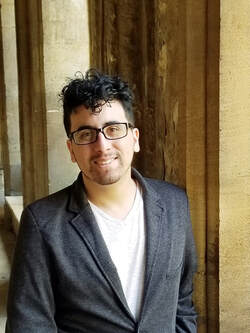 Kevin Casin is a gay, Latino fiction writer, and cardiovascular research scientist. His fiction work is featured in If There’s Anyone Left, From the Farther Trees, and more. He is Editor-in-Chief of Tree And Stone, an HWA/SFWA/Codex member, and First Reader for Diabolical Plots and Interstellar Flight Press. For more about him, please see his website: https://kevinmcasin.wordpress.com/. Please follow his Twitter: @kevinthedruid. Excerpt from Jalapeño Republic |
Archives
July 2024
Categories
All
|
Donate and Make Literature Happen
is published by the Somos En Escrito Literary Foundation,
a 501 (c) (3) non-profit, tax-exempt corporation. EIN 81-3162209


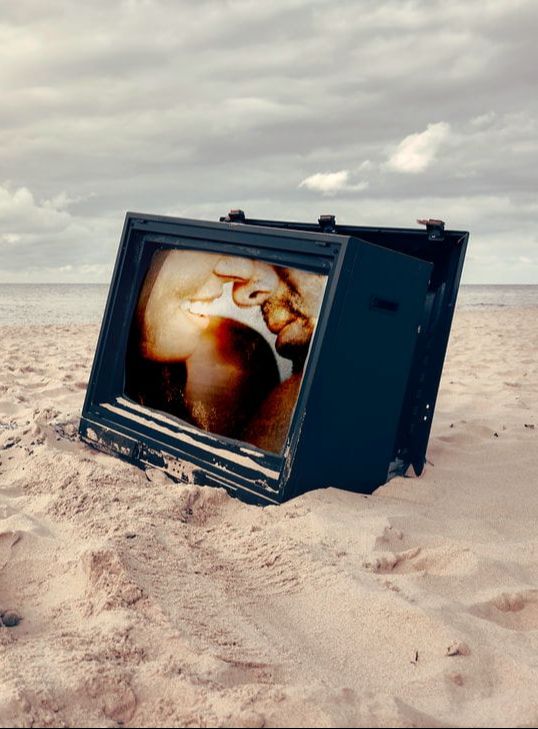
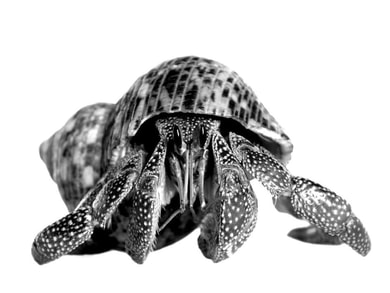
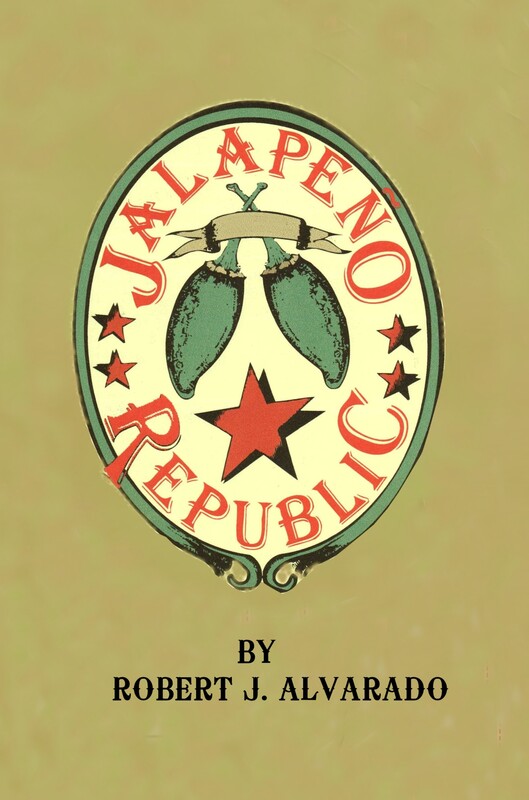
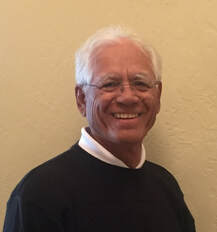
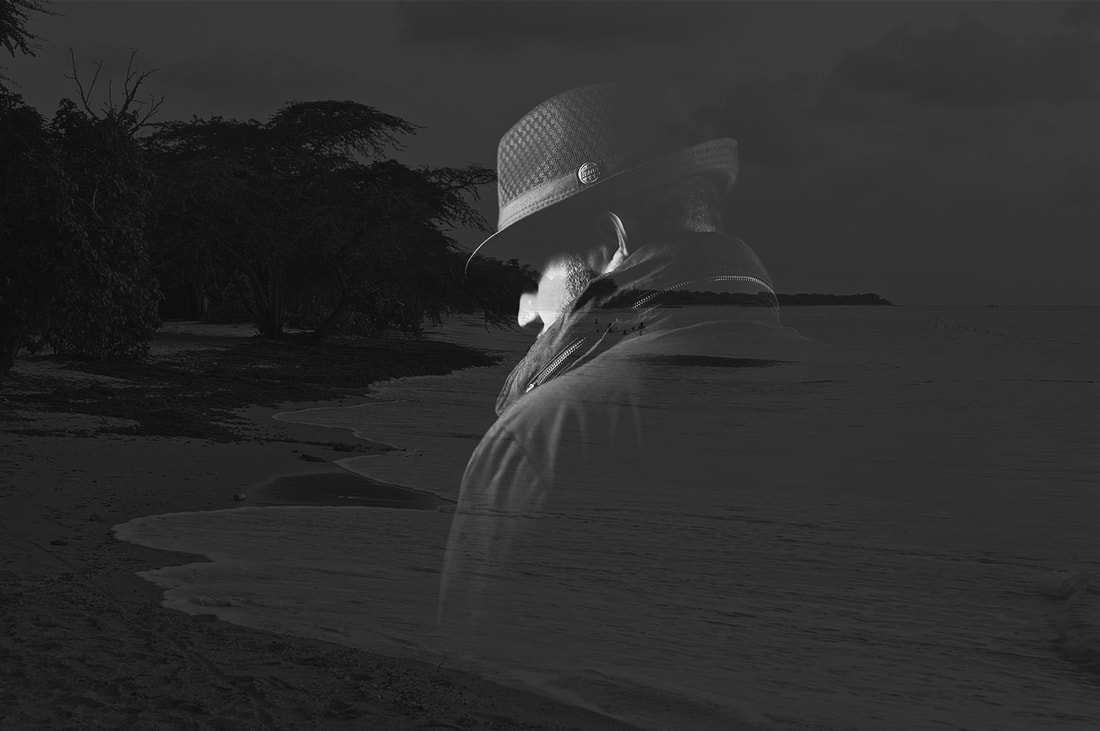
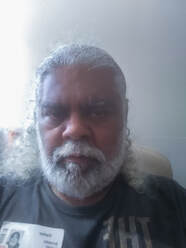
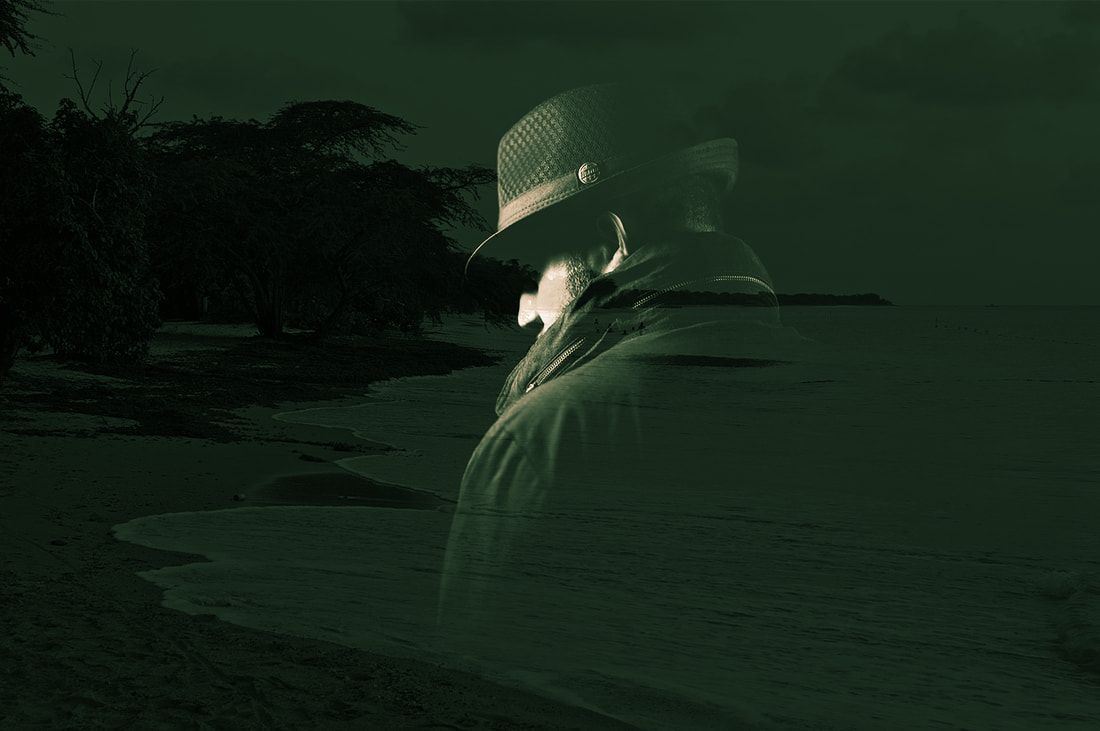
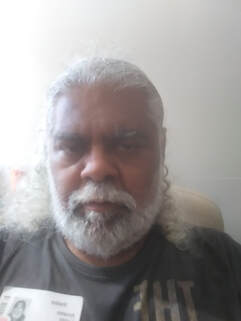
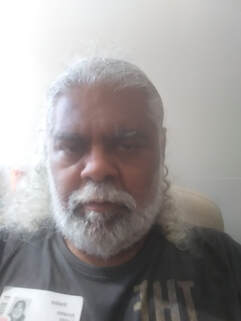


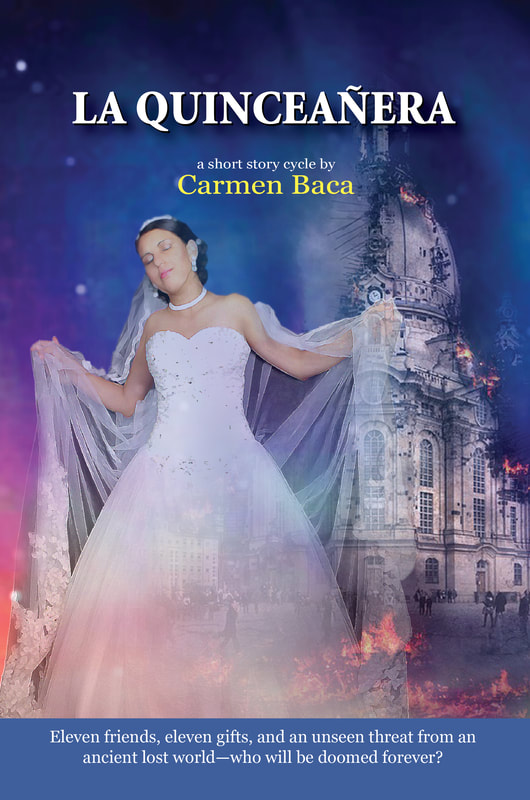
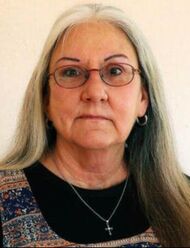
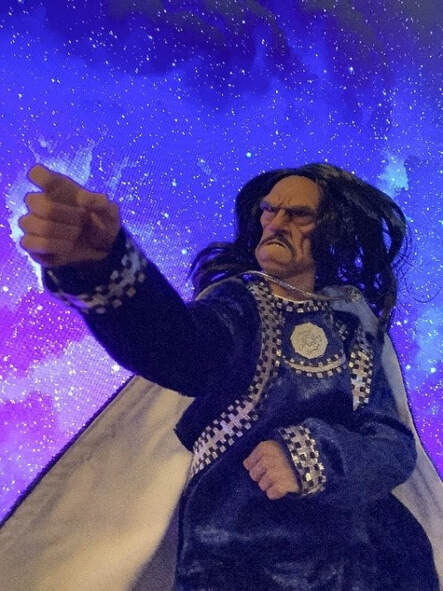
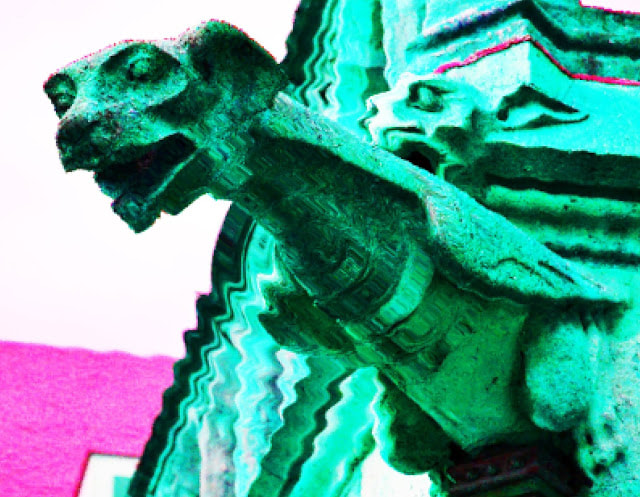
 RSS Feed
RSS Feed